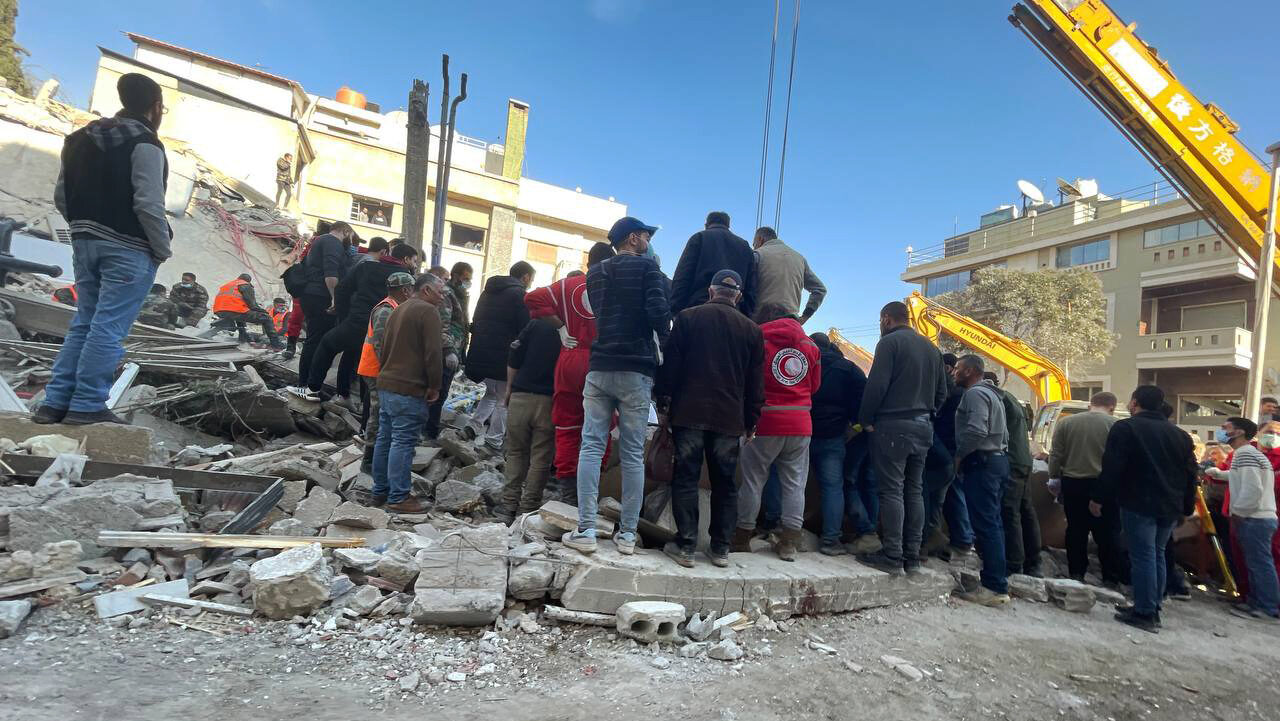Alleged Israeli Attacks Continue To Kill Top IRGC Officials
Experts believe this will not spark a full-scale war, but some measured retaliatory strikes should be expected
According to Iranian media, an alleged Israeli strike in Syria killed top Iranian Revolutionary Guard Corps (IRGC) officials on Saturday in a multi-story building in Damascus. This building was reportedly used by Iranian advisors supporting the government of Syria’s President Bashar Assad.
The reports say that among the five people killed were the IRGC intelligence chief officer for Syria and two other members of the corps.
Experts do not expect this to spark an escalation into a full-scale war, but milder Iranian retaliation attacks could be on the horizon.
Nour News identified the deceased individuals, who were reportedly closely linked to Iran’s intelligence apparatus, as General Sadegh Omidzadeh, the intelligence officer of the Guards’ expeditionary Quds Force in Syria, and his deputy, known by the alias Hajj Gholam. However, the IRGC later released statements naming the five deceased as Hojjatollah Omidvar, Ali Aghazadeh, Hossein Mohammadi, Saeed Karimi, and Mohammad Amin Samadi, without specifying their ranks.
These are highly important people because they are running the whole corridor when it comes to Iraq, Syria, and Lebanon
Dr. Uzi Rabi, director of the Moshe Dayan Center for Middle East and African Studies at Tel Aviv University, told The Media Line that, operatively, “these are highly important people because they are running the whole corridor when it comes to Iraq, Syria, and Lebanon.” Rabi was referring to the weapon-transferring land corridor extending from Iran through Iraq and Syria and finally reaching Hizbullah in Lebanon.
Last month, Brig. Gen. Sayyed Reza Mousavi, a senior commander in the IRGC, was killed in an airstrike in Syria, allegedly carried out by Israel. Mousavi’s responsibilities included overseeing logistic transfers between Iran, Syria, and Lebanon, and managing financial transactions from Iran to Syria, including payments to Hizbullah members.
According to Rabi, the recent attacks were destined to send Tehran a message and leave the impression that the stakes are getting higher. He noted that the weaponry delivery will continue anyway and that the attacks will only manage to give Iran some second thoughts about the regular conduct of things.
This holiday season, give to:
Truth and understanding
The Media Line's intrepid correspondents are in Israel, Gaza, Lebanon, Syria and Pakistan providing first-person reporting.
They all said they cover it.
We see it.
We report with just one agenda: the truth.


They put a direct threat to the very survival of the men on the spot
“It tells them that Israel is fully equipped with information that could harm them in no time when it comes to the leaders and the activists. They put a direct threat to the very survival of the men on the spot,” said Rabi.
Shahin Modarres, an international security analyst and an intelligence expert focusing on Iran and Israel, believes that the strikes may signify an Israeli proactive stance in preparation for a prospective conflict.
“Rather than being merely pressure-relief mechanisms, these targeted killings appear calculated, indicating a strategic approach by Israel,” he told The Media Line.
“The case of Sayyed Razi Mousavi is emblematic,” he said, claiming that his assassination significantly impeded the logistics responsible for transporting weapons from Iran to Lebanon for Hizbullah.
Regarding Saturday’s attack, Modarres said it is a shift towards targeting the intelligence brain of operations. He noted that this suggests, “a deliberate escalation by Israel.”
“The objective appears to be a systematic weakening of the Islamic Republic, preemptively undermining its capabilities in the event of a full-scale war,” he added.
On Saturday, the Islamic Republic pledged to retaliate against Israel following the strike that, according to Tehran, resulted in the deaths of five Guards and an undisclosed number of Syrian troops.
However, Mohammed Zahid, a senior geopolitical researcher at Rasanah, a Riyadh-based think tank that focuses on Iranian, regional, and international affairs, said that when it comes to Israeli strikes, Iran has exercised strategic patience.
He told The Media Line that we are yet to see what Tehran’s response will be, but he does not believe that Iran will strike Israel directly or target high-level Israeli personnel. “They don’t want to enter a direct confrontation against Israel, and the costs are great,” he added.
That is why he believes that a possible Iranian response could be striking alleged Mossad sites, such as the attack it executed last week in Erbil. That being said, he noted that the expected attacks will not be serious enough to add another dimension to the Gaza war.
Rabi said that in the case that Iran wants to have an open war, it should retaliate fiercely. However, he doubted that is the case. “I think they don’t want it; they would like just to tease the waters and see how far they can take it. They would stick to sort of a mild and well-calculated response.”
Concerning the effect that these constant attacks against the IRGC could have on the internal landscape of the Islamic Republic, which is currently marked by a confluence of challenges, including social unrest, economic crises, and political protests within the nation, Modarres said that the targeted strikes are deteriorating the regime’s public image.
The rhetoric of the Islamic Republic … stands in sharp contrast to the evident failures and vulnerabilities witnessed today
“The rhetoric of the Islamic Republic, steeped in years of embellished propaganda, stands in sharp contrast to the evident failures and vulnerabilities witnessed today, notably manifest in a faltering intelligence apparatus, laid bare for what the regime perceives as adversaries,” he said.

